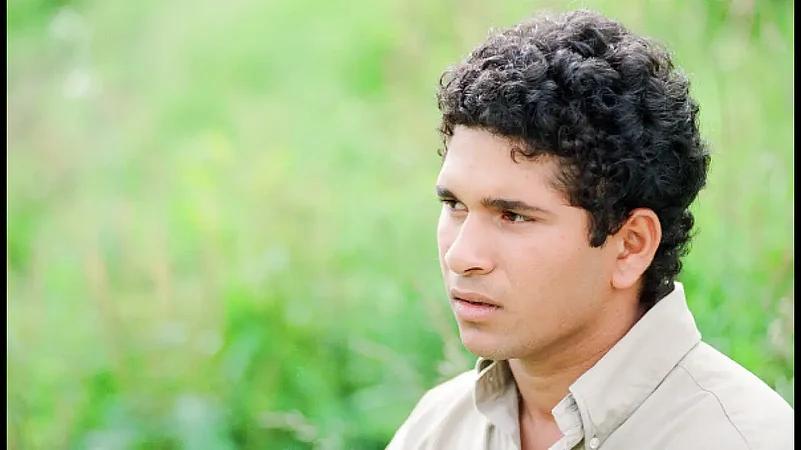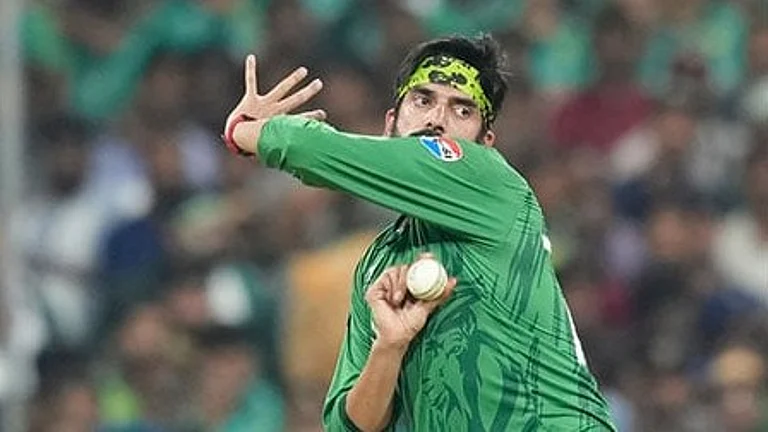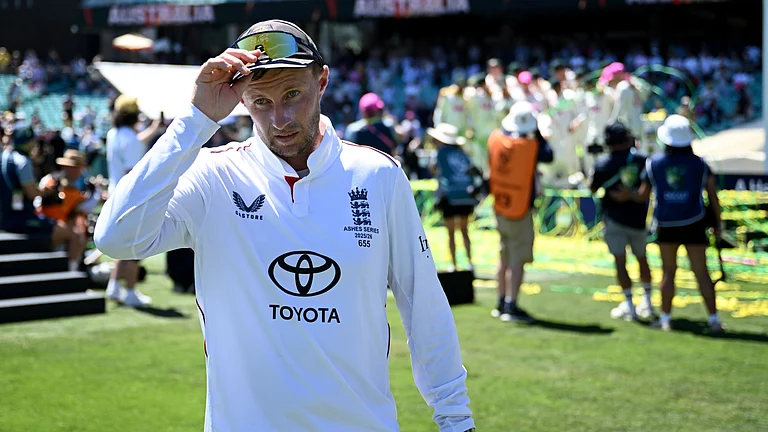Defiance is courage mixed with an impulsive streak of insanity. Defiance is Sardar Jarnail Singh at Asian Games, Jakarta, 1962 when braving a nasty cut on his forehead and with six stitches, the defender par excellence would join the forward line and score in both semi-final and final. Defiance is Jumbo in Antigua Test, 2002 when he would bowl 14 overs on a trot with a broken jaw and also claiming the prized scalp of a batsman no less than Brian Lara. Nothing heroic but reticent and businesslike, he would reply, "I did not want to sit around." Defiance is Australian Rick McCoster's batting at No. 10 with a broken jaw and contributing to the team's victory. Defiance certainly is Sachin felled by a vicious bouncer from Waqar at Sialkot, bleeding profusely, feeling dazed but then disregarding medical advice and mustering his nerves and wits, he would say, "Mai Khelega!" (I'll play).
In hindsight and given the perilous relationship between India and Pakistan, it is easy but also irresponsible to interpret it in jingoistic terms positing that it marks the hinge moment or inflexion point for Indian Cricket. It could also be tempting to compare it to Captain Vikram Batra's war cry at the forbidding heights of Kargil, "Yeh Dil Maange More!" But could there be alternative ways of viewing this moment?
Let's first recap the run-up to the moment. Accentuating traditional hostility between India and Pakistan are two debutants - one express fast bowler who has honed his skills on the streets of Pakistan playing mostly with taped tennis balls, the other a prodigious batsman from the famed Shivaji Park. Sachin the batsman has been erratic by far exhibiting only flashes of brilliance; Waqar, the bowler has been claiming wickets in droves. Three Test matches have been drawn affairs and in the second innings of the fourth test, India at 38 for 4 has its back to the wall. The test match is tantalisingly poised. Runs in Waqar and a snorter from him hit Sachin's nose. Blood on the cricket pitch is a gory sight. He feels dazed and devastated. And then instinctive reaction- Main Khelega!
What if he had said the same thing in English, "I will carry on", would it have been the same thing? What if he had uttered a grammatically correct sentence -- "Main Khelunga!" Could it be that when he uttered 'Mai Khelega', he was physically at Pakistan but mentally at Shivaji Park with Achrekar Sir looking over him and he could not have chosen the safety of the dressing room? He would rather get back on his feet to face murderous mayhem around as a tribute to his coach who had taken him under his wings after considerable reluctance? Imagine the same thing happening at Shivaji Park. Achrekar Sir would say," Tendilya, Kya Karega?" He would say without a hint of doubt," Mai Khelega!"
Or that the unmistakable touch of Calypso in 'Mai Khelega' owed to the way the mighty West Indians used to play cricket. In the 1980s, he was growing up with tales of their intrepid adventures on the cricket field. Sir Vivian Richards was a massive influence so, at 16 years and 205 days, he did not want to take the easy way out, to chicken out and fall in the imagined estimation of his hero. He simply did not want to let Viv down.

Or simply that champions are made of sterner stuff and strength is not about being physically robust but mentally resilient and resilience shows when it is needed most. It was the final day and if India had lost the test, it would have lost the series too. He instinctively understood that the team needed the individual so how an individual could turn his back on the team. It would have been akin to betraying that tacit understanding, that omerta.
Or he understood that the sporting rivalry between him and greats of the Pakistani bowling was the beginning of the beginning and if he capitulated there at Sialkot, a comeback against them would be almost a psychological impossibility. Or that more than anyone else, he understood that blood- when it mixes with dust- turns blackish red and it is an essential rite of passage to international Cricket. Or that for a 16-year adolescent, mother and motherland mean one and the same thing. So with so much at stake, he had to fight till the last drop. Or that being from the city of Bollywood, he would remember the standard denouement of Bollywood movies: the protagonist is soaked in blood, badly battered and the antagonist-villain, full of violent passion, is laughing at his frailty. Blood flows like water. A fly circles around his bleeding nose. He remembers his girlfriend. He opens his left eye first, right eye next and then staggers back on his feet and then puts the matter across by raining fists and punches. Poetic Justice.
So when Sachin said, 'Mai Khelega', it was only natural that he -- opening the full face of his bat -- would hit Waqar for a boundary towards a deep fine leg.
Some poetic justice this!

























